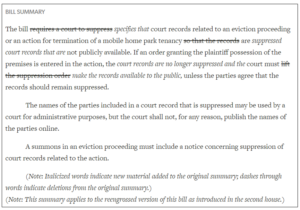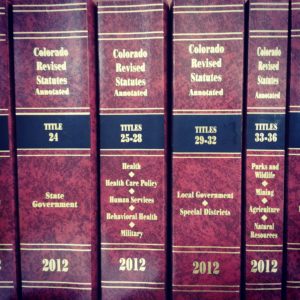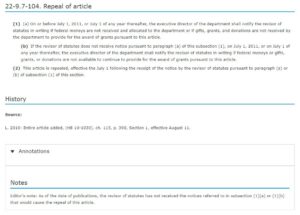by Jery Payne
You’re sitting in your office with your cup of joe or grande ristretto caffe latte—depending on your style—reading the newspaper when in walks a lobbyist, who says “I want to talk to you about bank robbing.” As you take a drink, she continues, “The bank-robbers association believe their occupation needs to be licensed.”
After the coffee is wiped up, you manage to ask her, “They have an association?”
“Yes,” she replies, “they play an important part in the economy, and licensing is very important to avoid poor quality, which can be dangerous. The banks support licensing.”
“The banks?”
“Yes,” she adds, “The banks suffer the most from poor-quality testing of bank security.”
“Ah, I thought you meant actual thieves.”
“No, silly. Legal bank robbers: the people who try to circumvent physical and electronic security measures.”
After a long talk, you agree that licensing legal bank robbers may be the best way to help Colorado banks. Before you put in a bill request, however, you may want to find out if the proponents have obtained a sunrise report from the Department of Regulatory Agencies. It might save you some trouble.
Section 24‑34‑104.1 sets the basic requirements necessary to propose “the regulation of any unregulated professional or occupational group.” This section requires such a proposal to be submitted by December 1 to the Department of Regulatory Agencies for analysis. The proposal must be signed either by ten members of the occupation or by ten other people. The proposal must contain the following:
- A description of the group proposed for regulation, including a list of organizations representing practitioners in Colorado, and an estimate of the number of practitioners;
- A description of the problem and why regulation is necessary;
- The reasons why the specific form of regulation is proposed;
- The public benefit of the regulation;
- The cost of the regulation; and
- If the proposal seeks to disqualify a person based on criminal history, a description of the disqualifications and how the disqualifications serve public safety or commercial or consumer interests.
If the proposal is in order, the department should analyze the proposed regulation and send the analysis to the proponents and the General Assembly by October 15 of the following year. If the department finds that the lack of regulation “poses an imminent threat to public health, safety, or welfare,” the department will promptly notify the proponents and the Legislative Council, which will hold a hearing on the matter. If the Legislative Council at the hearing agrees there is an imminent threat, the department may forego the analysis, and a legislator may introduce legislation without having the report.
If the matter is not so dire, the department will evaluate and analyze the proposal and make a recommendation in a report based on whether:
- Unregulated practice concretely harms or risks public health, safety, or welfare;
- Regulating occupational competence is needed and beneficial;
- The public can be protected in a more cost‑effective manner; and
- Disqualifications based on criminal history serve public safety or commercial or consumer interests.
Once you have the report, you may introduce the bill within two regular legislative sessions.
The department may decline to conduct the analysis if it already did the analysis within the last three years and no new information has been submitted that would change the department’s mind.
If the department doesn’t do a new analysis, it will reissue the previous report. This means you have a report and may introduce a bill within the next two regular legislative session.
Now I bet I know what a lot of you are thinking: “What exactly does ‘regulating’ mean?” The Office of Legislative Legal Services thinks it means legislation concerning a job that hasn’t previously been the specific subject of legislation. The Governor’s Office, however, has said that it means only licensing, registration, and certification. The Governor’s Office reasoned that most occupations are subject to some laws; therefore, the sunrise statute cannot apply to all laws specific to an occupation. Yet this reading is hard to square with the actual language of the statutory section, which requires proponents of the regulation to state “the reasons why certification, registration, licensure, or other type of regulation is being proposed …” So “regulation” appears to be more than certification, registration, or licensure.
Another problem with the interpretation of the Governor’s Office is that it conflates the regulation of an occupation with general‑purpose laws. For example, the law forbids bankers to steal, but the law doesn’t actually mention bankers. It applies to everybody regardless of whether they are a banker, so it is a general‑purpose law that incidentally a banker must obey when doing business. But a law that specifically requires bankers to keep a log of transactions is a law regulating bankers. A law that sets a standard or requirement for someone because of the person’s occupation is the regulation of an occupation. The mere fact that an occupation is subject to a general‑purpose law does not mean it is a regulated occupation; but a new law that would create a requirement specific to the occupation should be subject to the sunrise process.
Nevertheless, the governor may veto the bill because it does not follow his office’s interpretation. Ignore the reading of the Governor’s Office at your own risk.
So before using a bill request to help bankers get better security testing, it makes sense to ask if the proponents have followed the sunrise process.












